Haiti Moves Towards Adoption of Counter-Trafficking Law


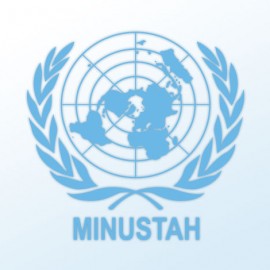 Below is the latest semi-annual report from the United Nations Stabilization Mission in Haiti (MINUSTAH) covering the period from August 31st - March 15th. The report provides an overview of key developments during this time, especially police capacity, rule of law, and human rights promotion - all of which need to be strengthened significantly before MINUSTAH can fully transition its responsibilities to the Haitian government.
Below is the latest semi-annual report from the United Nations Stabilization Mission in Haiti (MINUSTAH) covering the period from August 31st - March 15th. The report provides an overview of key developments during this time, especially police capacity, rule of law, and human rights promotion - all of which need to be strengthened significantly before MINUSTAH can fully transition its responsibilities to the Haitian government.
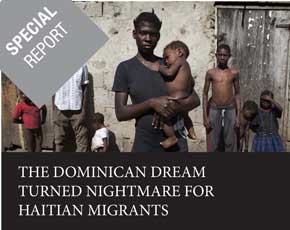 Equal Times has produced a compelling report on the abuse of Haitian migrants in the Dominican Republic. It is concise, features remarkable photography and raises important issues such as the extent to which Dominican employers and law enforcement collude with traffickers. Preventing and responding to abuses is necessary for developing a bilateral relationship between Haiti and the Dominican Republic based on mutual respect.
Equal Times has produced a compelling report on the abuse of Haitian migrants in the Dominican Republic. It is concise, features remarkable photography and raises important issues such as the extent to which Dominican employers and law enforcement collude with traffickers. Preventing and responding to abuses is necessary for developing a bilateral relationship between Haiti and the Dominican Republic based on mutual respect.
 Plumpynut revolutionized the treatment of acutely malnourished children. In Haiti, Partners in Health (PIH) has produced a local variant, Nourimamba, since 2007. The Abbot pharmaceutical company is working closely with PIH to further improve Nourimamba and to expand production. The opening of a factory is scheduled for end 2012. This is good news for malnourished children, the health care providers who treat them, and the farmers who produce the ingredients for Nourimamba. An article by New York Times writer Duff Wilson on the PIH/Abbot partnership follows.
Plumpynut revolutionized the treatment of acutely malnourished children. In Haiti, Partners in Health (PIH) has produced a local variant, Nourimamba, since 2007. The Abbot pharmaceutical company is working closely with PIH to further improve Nourimamba and to expand production. The opening of a factory is scheduled for end 2012. This is good news for malnourished children, the health care providers who treat them, and the farmers who produce the ingredients for Nourimamba. An article by New York Times writer Duff Wilson on the PIH/Abbot partnership follows.
 The transition from emergency relief to reconstruction is happening, albeit slowly. It won’t be easy and there will be setbacks, particularly given that the rainy season is upon us along with the risks it brings of flooding, mudslides, infectious diseases, and infrastructure damage. Engineers have completed emergency mitigation measures at six of the most vulnerable settlements to protect the most vulnerable, but much remains to be done.
The transition from emergency relief to reconstruction is happening, albeit slowly. It won’t be easy and there will be setbacks, particularly given that the rainy season is upon us along with the risks it brings of flooding, mudslides, infectious diseases, and infrastructure damage. Engineers have completed emergency mitigation measures at six of the most vulnerable settlements to protect the most vulnerable, but much remains to be done.
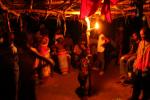 Don't just read about Haiti, see it! Matt has uploaded a number of interesting new photos to the Haiti Innovation Flickr Site. They include shots of a Vodoun ceremony, Port au Prince's fragile but beautiful gingerbread houses, coastal life, and grafitti art in Port au Prince.
Don't just read about Haiti, see it! Matt has uploaded a number of interesting new photos to the Haiti Innovation Flickr Site. They include shots of a Vodoun ceremony, Port au Prince's fragile but beautiful gingerbread houses, coastal life, and grafitti art in Port au Prince.
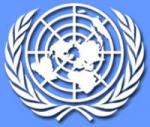 According to Edith Lederer (AP), The Security Council voted Tuesday to extend the U.N. Peacekeeping Mission in Haiti (MINUSTAH) for another year. The Council slightly reduced peacekeepers and added more police instead. In the absence of large scale security operations (such as took place in Cite Soleil), MINUSTAH will increasingly focus on rapid deployment to border and coastal areas. Also copied below is the full UN resolution which references the protection of children, the participation of women, and the need to promote human rights and legal reform. While Haiti is stabilizing, and the relationship with MINUSTAH is at times tense, it is still very much needed.
According to Edith Lederer (AP), The Security Council voted Tuesday to extend the U.N. Peacekeeping Mission in Haiti (MINUSTAH) for another year. The Council slightly reduced peacekeepers and added more police instead. In the absence of large scale security operations (such as took place in Cite Soleil), MINUSTAH will increasingly focus on rapid deployment to border and coastal areas. Also copied below is the full UN resolution which references the protection of children, the participation of women, and the need to promote human rights and legal reform. While Haiti is stabilizing, and the relationship with MINUSTAH is at times tense, it is still very much needed.
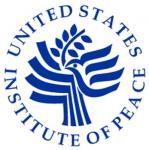 The United States Institute of Peace (USIP) has been working with the Haitian Government to reform its sorely outdated criminal laws, more suited to the needs of 19th Century France than Haiti at present. For this reason, Haiti's justice system has not been able to address moden crimes which include trafficking in persons, drug trafficking, and violations of human rights. President Preval has initiated a comprehensive reform process with the participation of civil society, the United Nations, and think tanks such as USIP. This process could help bring about a new chapter in Haitian history where criminal laws protect rights instead of violating them, and serve all the people of Haiti, including the poor and vulnerable.
The United States Institute of Peace (USIP) has been working with the Haitian Government to reform its sorely outdated criminal laws, more suited to the needs of 19th Century France than Haiti at present. For this reason, Haiti's justice system has not been able to address moden crimes which include trafficking in persons, drug trafficking, and violations of human rights. President Preval has initiated a comprehensive reform process with the participation of civil society, the United Nations, and think tanks such as USIP. This process could help bring about a new chapter in Haitian history where criminal laws protect rights instead of violating them, and serve all the people of Haiti, including the poor and vulnerable.